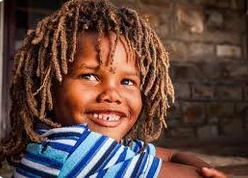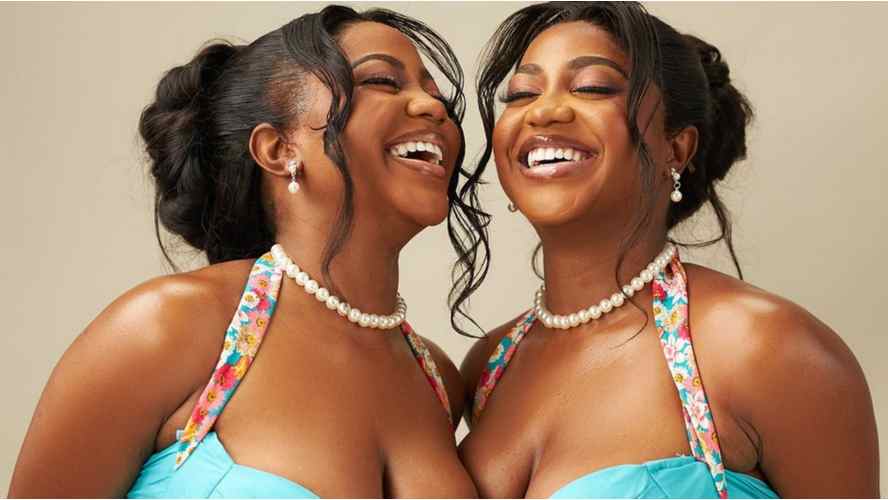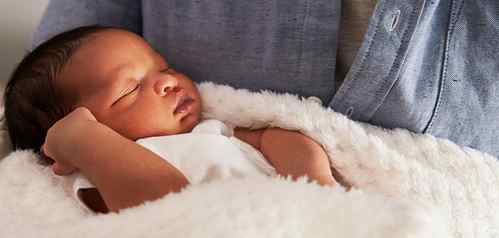
support@yorubalibrary.com
+2348073529208, 07038599574

The moment a new child is placed in your arms is filled with wonder. But some births carry an extra layer of mystique, marked by a physical signature that sets the child apart. In Yoruba culture, a baby born with a full head of long, thick, and curly or locked hair is immediately recognized as a special being, a child with a pre-ordained destiny. This child is known as Dàda. More than just a descriptive term, the name Dàda is a title, a spiritual identifier that connects the child to the divine and signals a unique life path filled with potential and purpose.
The Importance of Hair in Dàda Child
The distinctive hair of a Dàda child is never seen as a mere biological coincidence. It is interpreted as a direct sign from the spiritual realm. This characteristic is believed to signify that the child is a reincarnated ancestor or a spirit returning to the family lineage with a specific mission or message. The locked hair is considered sacred, often referred to as "irun didi" (knotted hair) or "dada irun" (Dada hair), and is treated with great care.
In traditional settings, the hair of a Dàda child was not to be cut haphazardly. Its maintenance and any rituals surrounding it were handled with specific intentions, as the hair is viewed as a source of their innate spiritual strength and connection to the other side.
Common Characteristics of a Dàda Child
While every child is unique, Yoruba tradition attributes certain general tendencies to children named Dàda. These are not strict rules but observed patterns that have been passed down since time immemorial.
• Strong-Willed and Determined:
The Dàda child is often believed to possess a powerful will and a clear sense of self from a very young age. They can be persistent and know exactly what they want.
• Innate Wisdom and Creativity:
There is a common belief that these children have an old soul quality. They may display intuition, creativity, or an understanding that seems beyond their years.
• Deep Sensitivity:
Their connection to the spiritual is also thought to make them highly sensitive to their environment, including the emotions of people around them. They thrive in calm, stable, and loving atmospheres.
• Natural Leadership:
With their strong presence and determined nature, Dàda children often naturally assume leadership roles among their peers.
Guidance for Parenting a Dàda Child
Raising a child identified as Dàda is considered a privilege that comes with a focus on nurturing their unique spirit.
1. Honor Their Uniqueness:
Celebrate their hair and the identity it represents. Explain its cultural significance as they grow, helping them build pride and self-awareness.
2. Provide Structure with Flexibility:
Their strong will requires gentle guidance rather than harsh opposition. Provide clear boundaries but also offer them choices to help them feel in control of their world.
3. Nurture Their Talents:
Pay close attention to their natural inclinations and passions—whether artistic, intellectual, or athletic. A Dàda child often thrives when their innate talents are recognized and encouraged.
4. Create a Peaceful Home:
Their perceived sensitivity means a harmonious home environment is essential for their emotional well-being.
The Sacredness of the Dàda's Hair
The hair of a Dàda is central to their identity. Historically, the first cutting of their hair was not a casual event but a ceremonial rite, often accompanied by prayers and offerings. It was believed that the clippings, like the hair itself, held spiritual potency and had to be disposed of properly, sometimes by being stored in a safe place or placed at the base of a sacred tree. This practice was to ensure the child's blessings and strength remained intact.
Oriki for Dàda
The most original version of Dada's eulogy is here below:
Olúgbori Ọdúnlámì,
Olúgbori itá, (Orò)
Ọsan na’mọ,
Jẹ́nbù ọ̀sẹ́ ọmọ ọ̀sẹ́ ni kòso,
Adéwùmí ọmọ ọ̀sẹ́ ni kòso,
O sé eégún gba ẹṣin.
O se ọjẹ, o fi wu’yì ni mẹ̀sùn-àgbò.
Jànbàlú, Olúgbori Ọdunlámi.
Olúgbori ni, Akòjà ni, Baba ni Dàda.
Dàda À-wúrú, yalẹ̀-yagi-oko
Conclusion:
To name a child Dàda is to acknowledge a beautiful mystery. It is an acceptance that this new life arrives not as a blank slate, but as an individual marked for distinction. The locked hair is a crown itsef.
Need more? Browse through our Oriki Gallery today, at zero cost.

Curious about Yoruba twin names often called Ibeji…

Check out what Aina really mean in Oruko Amuntorun…